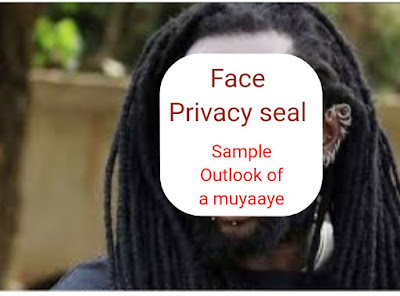Article by Johnious Tumusiime
Have you ever wondered why many youth in developing countries are “bayaaye”?! You might have ever, or maybe, you think it is the kind of life they prefer, or you think it is not your business to think about bayaaye and their life. I am one of those people that rarely take for granted anything affecting my countrymate, even though such thing may not be directly affecting me personally.
Let me in the first place give you the meaning of “bayaaye”! Bayaaye is a common term in Ugandan languages that is used to refer to “rogue people”. Bayaaye (rogue people) or Abayaaye (rogue people) is plural and its singular is Muyaaye (rogue) or Omuyaaye (a rogue) respectively. According to online dictionaries, a rogue (omuyaaye) is a mean, mischievous, bad, evil, or unprincipled person, who is often liked by people not minding his or her bad character. However, the same word, muyaaye is also commonly used to refer to refer to “hooligan” or “bad guy”. The lifestyle of omuyaaye or abayaaye is commonly referred to as kiyaaye lifestyle or buyaaye, while the acts of omuyaaye or abayaaye are commonly referred to as obuyaaye, or eby’ekiyaaye.
Uganda is one of the countries with many bayaaye, common everywhere, urban and rural but more in urban. Whereas, it is very bad, in the traditions of Uganda to be omuyaaye, and considered abnormal, many Ugandans are becoming bayaaye day and night.
I recently spent some time studying the life of bayaaye and came to understand the reason they choose to live such life. In fact, it is not anyone’s chice to be omuyaaye. The strongest reason people choose to lead the kiyaaye lifestyle is that they are poor, hopeless and worried!
Extreme poverty is the commonest characteristic among bayaaye. Well, there are some people who choose to live the kiyaaye lifestyle while they are not poor but they are the fewest, and, if well traced still, many of these start living this lifestyle while they are still young, poor and either hopeless or in hard struggles for hope, and end up getting addicted to this lifestyle.
One of the worst boosting agents of the kiyaaye lifestyle is discrimination. Discrimination, often being a result of the gap between the poor and the rich, or tribalism or religious beliefs causes hopelessness which in turn forces people, especially the youth to choose the kiyaaye lifestyle.
The other is poor upbringing of children by their family heads, which is also, on clear analysis, a result of poverty, discrimination, low education and hopelessness.
There is no way you can describe a muyaaye without the word “poverty”. Every muyaaye has, either in one’s background, history or present-day life the word “poverty”.
The government of Uganda has many times condemned obuyaaye, though the question remains, has the government done enough in preventing people from being abayaaye?
Keep following this site both on website and social media so you don’t miss the other articles coming to complement this one. In the following articles, we shall see how harmful it is to have many bayaaye in the country, why it is hard to fight obuyaaye, how best we can fight obuyaaye, how the bayaaye can be helped to overcome their challenges and become good citizens, etc.
You may give your response and opinion on this question through Facebook or Twitter
Please give your response and opinion or questions on this article below in the comment / reply box. Special queries; inquiries, corrections, complaints etc about this article may be emailed to the author through email: tumusiimejohnious@gmail.com
Click here to know more about the author.
 |
| Click in the image to go to Best Solutions Uganda Business site |
 |
| Click in Image to view live updates on COVID-19 in Uganda |
.






















